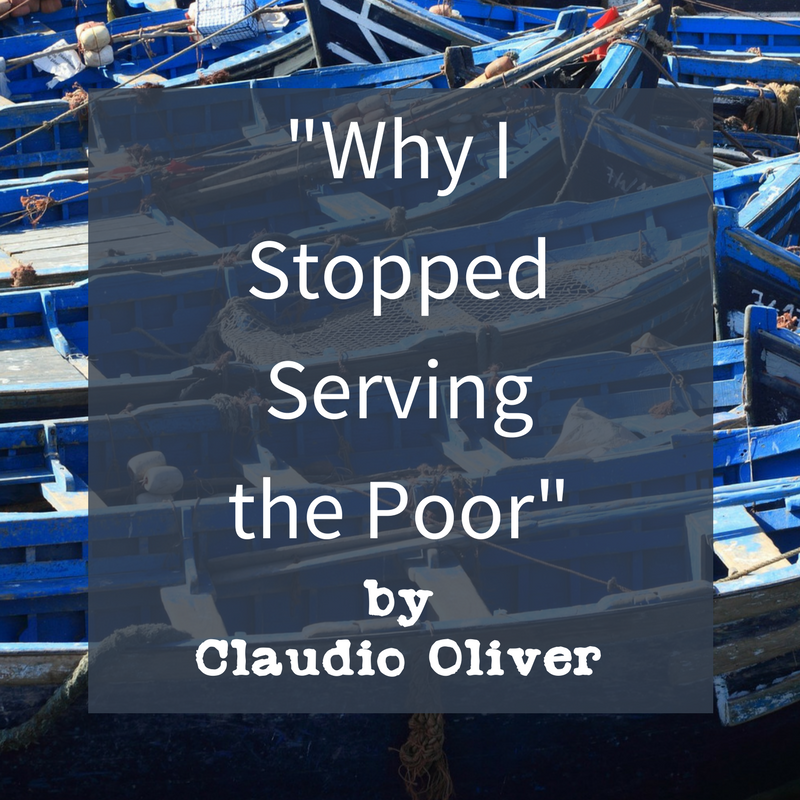|
For workers struggling to find pay, struggling to find consistent work, struggling to move beyond survival, extra stressed by their circumstances, reveal your presence to them so they know they don’t walk alone.
Be their Jehovah Shammah. Lord, hear our prayer. For those out of work, struggling to find it, feeling underwater as their dignity and identity are so closely connected to the reality of having it, be their Jehovah Bore, Elohim, and remind them that their worth comes from the dignity You’ve already given. Lord, hear our prayer. For workers being exploited — sexually, economically, racially, because of immigrant status or otherwise, Lord protect them. Hedge their intrinsic value, their families, their bodies and minds. Be their Jehovah Sabaoth. Lord, hear our prayer. For children, spouses, and friends, siblings, and parents who depend on these workers, Lord, provide for these families. Be their Jehovah Jireh. Change laws & oppressive policies, infuse empathy in those who have power over these. Be Jehovah Nissi, make yourself known to the workers, their families, their employers and politicians. Lord, hear our prayer. For the dignity innate in every human being For the everlasting love you so freely give, Lord, let these workers experience and know and feel-- You are near and You are love; You care, and You lead to green pastures. Be their Jehovah Rohi. Lord, hear our prayer. And for those who can advocate on their behalf, work toward their communal good, open up opportunities for flourishing, connect resources and networks — equip them for this good work. Energize them with your ever-flowing love, forgive them of any haughty thoughts, and let them learn as much as they teach, receive as much as they give, challenge as much as they encourage. Be our Jehovah Adonai. Lord, hear our prayer. Amen
0 Comments
If you struggle during this season to stay focused on Christ and his birth because of all of the distractions of commercialism starting with Black Friday and leading right up to December 25, Covid logistics for get-togethers, the perfect presents for every so-and-so, you are not alone. I used to get so frustrated during this season because it seems to not be about Christ at all (I wrote a blog post in my early 20s called why I hate Christmas.) But then I learned about Advent — and the church calendar in general — and it's given me a way to stay focused on Christ.
I've created a Nouns & Verbs Advent 2020 calendar as a mini morning devotional for 25 days leading up to the day we celebrate Christ's birth. Little prompts to go with each day. I'll be sending it out December 1 in my monthly newsletter, so sign up by November 30 on my homepage: genathomas.com 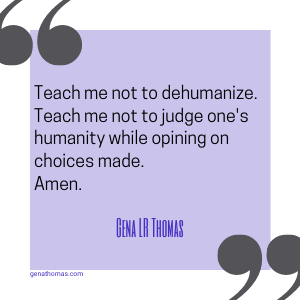 A prayer for the [Christian] political other-- Lord bless the Christian who votes differently than me. Open their—I mean our—eyes to see the bigger picture. Teach me not to dehumanize Teach me not to judge their humanity while opining on their choices. Lord bless the one who votes differently than me, and help me to mean this prayer. Yes, help me to mean this prayer. May I see Your Imago Dei in him, and may he see it in me. But even if he doesn't, Lord bless the one who votes differently than me. Let both of us use our votes for your goodness, for communal flourishing, and let our lives speak the sermons that move mountains. Give both of us wisdom to draw boundaries, but not build walls. Yes, Lord bless the Christian who votes differently than me, and bless me with this desperately needed grace. Amen. Dear white Christians,
I know that some of you might get angry that I am even distinguishing us as white, but it's necessary. You might ask why, and I'll answer, but not right now. Right now I want to remind us of the Lord's Prayer. Right now I want to say that if you are looking for a place to start untangling all that you may or may not understand that is happening in the world, start there, with the Lord's Prayer. OUR FATHER Yes, He is all of our Father. Notice Jesus does not say My Father. He says Our. Our is a collective possessive adjective here. We all get to be a part. Not just the sinless One; no, we are family. YOUR KINGDOM COME & YOUR WILL BE DONE This is not about our own kingdoms. This is not about my own family, my own house, my own financial wealth. This is about God's Kingdom Come. And His kingdom is a counter-cultural kingdom, it's an upside down kingdom, it's a shalom-embodied community where everyone is seen as neighbor and everyone flourishes in his/her own way. This is a kingdom where no one is higher on the "worth" scale than anyone else. Everyone is worthy. Everyone has value not because of his/her actions, but because he/she is a HUMAN BEING MADE IN THE IMAGE OF GOD. GIVE US THIS DAY OUR DAILY BREAD This is a violent confrontation with the idol of scarcity (or the scarcity mindset) that says there's not enough. There's never enough. How does this play out in what's happening right now? It plays out in privilege. Our privilege mixed with our American Dream mentality tells us (just as Egypt tried to ingrain in the Israelite psyche) that your worth is found in how much you produce, how much you own, how much you hoard, how much you keep. This idol feeds off of individuality. And we feed it so very much. It's ingrained in our very psyches. And we must be reminded every day that God is our provider, that there is enough to go around, and that we can trust the Manna that comes from above. When the Israelites when into the desert, Manna was necessary not just for their physical nourishment but also for their souls. Like them, we have come to believe the lie that there's not enough, we're not enough, our resources aren't enough ... so we hoard. We hoard resources, we hoard privilege, we hoard and build up our own kingdoms rather than building that shalom-filled community. FORGIVE US OUR TRESPASSES Why is it so hard for us as white Christians to ask for forgiveness? Why is it so hard for us to start with confession? Is it because we think it makes us look weak? Is it because we know confessing our complicity in racism requires that we take a good look at the kingdoms we've built and realize we, just like our ancestors, built them on a foundation of oppression? Is it because it requires us to scrutinize the things we've accumulated, hoarded? Our "successes"? We have trespassed against our brothers and sisters of color and we have trespassed against God. We won't move forward in this fight if we don't confess, not fake confessions of "oh I'm sorry you feel this way" or "I'm sorry if I unintentionally offended you". Nope. Not base-level statements of racism is wrong. That's not true confession. True confession says I WAS WRONG. WE WERE WRONG. WE HAVE SINNED. Full stop. We've perpetuated a horrible theology that says that white lives are more important than other lives, and what's worse, we've used the Bible to do it! Oh no, we've never said *that* out loud, but we say it with our staff makeup, with our bookshelves that have mostly/all white authors, with our constant references to white theologians, with our pulpits and church staffs, with our constant elevation of white thinkers, with the schools we choose for our kids, with the neighborhoods we choose to live in, with our outreaches. WITH OUR VALUES. Let's confess that our values have not aligned with the values of the kingdom of God. It's the internal sins, the sins of omission, the sins of silence, the sins of refusing to scrutinize our own lives that will keep us yelling from the rooftops that we hate racism all the while we're fighting to perpetuate it. Father, forgive us. We know exactly what we've done.  Here is a list of resources I personally recommend on racial justice from a Christian perspective. Please note, this is NOT an extensive list, and it is only of Christian books. There are many books on this topic that are very important to read that aren't included on this list! I also have a to-read section below of books I intend on reading but haven't yet as I am always learning more! I attempted to list them in order of what I would give to someone who has never done any anti-racism work first, but I did not read them in this order and I'm sure my ordering could use some help:
For groups of people, check out the following resources:
On my to-read list from Christian authors:
AND MORE FROM DAVID SWANSON 1. Leroy Barber (2016). Embrace: God's Radical Shalom for a Divided World. InterVarsity Press. 2. Brad Christerson, Korie L. Edwards, and Richard Flory (2010). Growing Up in America: The Power of Race in the Lives of Teens. Stanford University Press. 3. Frederick Douglass (2017). Narrative of the Life of Frederick Douglass and American Slave (Bicentennial Edition). Frederick Douglass Family Initiatives. 4. Michelle Ferrigno Warren (2017). The Power of Proximity: Moving Beyond Awareness to Action. InterVarsity Press. 5. J. Daniel Hays (2016). From Every People and Nation: A Biblical Theology of Race (New Studies in Biblical Theology Book 14). InterVarsity Press. 6. Jon Huckins and Jer Swigart (2017). Mending the Divides: Creative Love in a Conflicted World. InterVarsity Press. 7. David P. Leong (2017). Race & Place: How Urban Geography Shapes the Journey to Reconciliation. InterVarsity Press. 8. D. L. Mayfield (2020). The Myth of the American Dream: Reflections on Affluence, Autonomy, Safety, and Power. InterVarsity Press. (Release Date: August 18, 2020). 10. Brenda Salter McNeil (2020). Becoming Brave: Finding the Courage to Pursue Racial Justice Now. Brazos Press ( 11. Brenda Salter McNeil (2020). Roadmap to Reconciliation 2.0: Moving Communities into Unity, Wholeness and Justice. InterVarsity Press. (Release Date: June 16, 2020) 12. Brenda Salter McNeil and Rick Richardson (2009). The Heart of Racial Justice: How Soul Change Leads to Social Change. InterVarsity Press. 13. Mark A. Noll (2008). God and Race in American Politics: A Short History. Princeton. 14. Adrian Pei (2018). The Minority Experience: Navigating Emotional and Organizational Realities. InterVarsity Press. 15. Jemar Tisby (2021). How to Fight Racism: Courageous Christianity and the Journey Toward Racial Justice. Zondervan. (Release Date: January 5, 2021) 14. Miroslav Volf (1996). Exclusion & Embrace: A Theological Exploration of Identity, Otherness, and Reconciliation. Abingdon Press. 15. Curtiss Paul DeYoung, Michael O. Emerson, George Yancey, and Karen Chai Kim (2004). United by Faith: The Multiracial Congregation As an Answer to the Problem of Race. Oxford University Press. And another list from a different David Swanson: (who wrote the book Rediscipling the White Church) has a constantly-updated reconciliation bibliography. Use the comment section below to tell me what resources you would add. Also check out my published page to see what I have written about racial justice. The full responses from church & ministry leaders from my article at Missio Alliance. Thank you to each of these leaders for responding.
I asked three questions: 1.How does Ahmaud Arbery’s unjust death and lack of prosecuting his killers affect black Christians? 2. What do you wish you could tell white evangelicals without feeling judged by them in your reaction to this most recent case? 3. How should the American Church respond? A First Lady from Nashville, Tennessee, said, “Ahmaud Arbery’s unjust death and the lack of prosecuting his killers has made the black community feel enraged, disheartened and disappointed. My timeline has been filled with cries of ‘not again’ and ‘how long O Lord.’ I lament that racial trauma has become all too familiar in our existence here in America.” A worship leader from Kannapolis, North Carolina, said, “For me personally the affect comes with feeling as though we don't matter! That our lives are perceived as so insignificant, that justice isn't even deserved. However, I'm called as a Christian to have to reconcile and forgive, and honestly, it creates an inner tension because of the injustice. I have to be intentional in not allowing the same hatred that lives within Ahmaud's killers, to take residence in my heart. It’s hard and it requires me to be intentional! The American Church should respond with lament! It should also utilize its voice to influence and direct culture surrounding these injustices when they occur. What it cannot do is continue to be silent and let a few voices speak for the majority; IT MUST STAND UNITED FOR JUSTICE and be the Imago Dei! I would say to white evangelicals, my lament, my anger, my frustration, my being tired, is something you will never understand! So don't tell me how to feel in this moment or explain to me that you’re not racist. Allow me to process these emotions and to embody the scriptures that say mourn with those that mourn! Don't minimize the pain that the black Christian community experiences by seeking to provide explanations as to why it happened or what caused it to happen. Finally, if you're choosing to be silent, during these times don't get upset with those who chose to be LOUD.” A lead pastor from Charlotte, North Carolina, said, “Tonight I cried in my wife’s lap as I had to have the talk with my sons again. The talk isn’t about how to treat women or how to be a man but how to avoid being killed. Each word measured and balanced but the serious of the moment was not lost. I kept repeating, not to make you afraid, but aware. My 13-year-old son attempted to process it. My 18-year-old son was hearing it again. His eyes never looked away from mine. My wife listened. She allowed me the liberty to be brutally honest. Years ago, I avoided talking to my youngest about the unarmed black man killed in Charlotte. I refused to rob him of his innocence until one day while driving to the store, a police car pulled up beside us and he said, ‘Dad, I am scared.’ When I asked him why, he said, ‘Police kills black people.’ He was 6 years old when Jonathan Ferrell was killed. I gripped the steering wheel and told him that he did not have to be afraid. I lied. Jonathan Ferrell was killed walking distance from our home in East Charlotte. I thought he was too young to understand it, but his friends told him on the playground. Their parents thought it was necessary to tell their young black sons what I was afraid to tell my own. I wasn’t prepared then, but sadly I’ve gotten better over time. Each year I’ve had the talk with them. Not the gentle reminders that parents tell their children about wearing a helmet on bicycles or wearing their seatbelts when driving. The names are too many. The images are seared in my brain and now like many black fathers, I’ve passed the realities to my sons. Again, I tried to remain balanced by speaking of justice, the evil of men, and point them to Jesus. But it’s not easy when I try to answer the question of why this continues to happen? Now as the talk is repeated and I have become a pseudo-expert once again explaining reactions, racism, and realities; the looks on my sons’ faces hurts me to the core. How can they be judged by melanin? I spoke to them using examples of my white counterparts assuring them that we all have something; this happens to be ours. The words are empty. They know it. The cancer of racism isn’t just a world problem but a church one as well. When our predominantly black church merged with a white church during the Trump era, my sons witnessed me sandwiched between two worlds. They witnessed me skirt the Keith Lamont Scott issue as I attempted to bring two cultures under one umbrella. I won’t do that again. I’m tired of folks weaponizing my blackness. Tired of the church excluding racism to ‘ensure the purity of the gospel remains’. Tired of editing posts to make sure I’m being balanced. Tired of being labeled angry when I’m expressing myself. Tired of waiting for justice. A minister of Christian education at a Baptist church in Kansas City, Missouri, who sits on several boards, said “Such events, that happen frequently, is like being mercilessly and repeatedly bullied; it's like perpetually hitting your head against a brick wall; it's like being trapped in the Twilight Zone. Such events seem to reinforce the idea that there are two Americas: one for whites and for everyone else. For many African Americans, this twenty-first century scenario is the continuation of an insidious narrative: white man feels victimized, fears for his life, and is justified to physically or emotionally assault the Black body with impunity. The continuation of this narrative traumatizes African Americans which seems to sequester our voice; the continuation of this narrative makes us angry, cynical, and hopeless. Some lose the get-up-and-go to continue crying out and standing for justice. This trauma is not inconsequential because epigenetics teaches us that the daily trauma that African American females experience is passed on to their babies in utero. This trauma alters the fetus such that as fully-grown adults they suffer from such maladies as hypertension, diabetes, and coronary heart disease. Epigeneticists have found the same maladies in Holocaust survivors and their descendants. The American church must be dutiful to learn about African American history as African American history is world history. The American church must publicly renounce the ideology that animates this type of behavior: white supremacy. The American church must address this deep-rooted sickness of racism from the pulpit and in the classroom. The American Church must develop discipleship initiatives that address racism in this country and the concomitant behavior. The American church must lament such unjust acts against imago Dei bearers. The American church must then launch into action, to stand for justice, and to reform social institutions like the criminal justice system and education. The American church must love her brothers and sisters, as herself, by standing for justice. White evangelicals love and serve the same God as African American Christians. This same God loves justice and hates injustice. This same God calls us to love our neighbor as ourselves. This same God demands that our epistemology inform our ethics; to know God’s word is to do God’s word. Do my white brothers and sisters love justice and hate injustice? Do my white brothers and sisters truly love their neighbor?” A writer from Brooklyn, New York, said, “Ahmaud’s death is another nail in the backs of black people in America. Black Christians especially, have to figure out how to cope with yet another tragedy as we wrestle with the truth about the goodness of our God. It is now a question of why evil happens but why does it keep happening to US? I wouldn’t dare presume the feelings for all black people, but I think it is safe to say that we are tired. The American Church needs to take to the streets. She should be on the frontlines and leveraging every bit of her power socially and politically to make something happen. When it comes to abortion and same-sex marriage you will find Christians in the ears of politicians, why can’t they put that same energy to seeing other people made in the image of God be protected too? The worst part of this has been all of the texts and calls I’ve received from white Christians who are praying for me and feel for me. Do their hearts not break over this? Do they not feel the pain of injustice in their bones? Why is it just me? We have had enough of thoughts and prayers, it is time to put your money, time, and power where your mouth is. I have nothing left to say to white Evangelicals. We are here again because of their silence and refusal to value what Jesus values.” A children’s church director from Georgia, said, “Remember how we as Americans felt on September 12, 2001? There was this collective grief and horror at having watched innocent human life taken right before our eyes. There was anger and a desire to make someone pay as we looked at our children and tried to make them feel safe, grasping for words to explain to them how something so evil could have happened. That sick feeling of powerlessness and rage is something that the Black community re-lives every time we have to mourn another son or daughter like Ahmaud Arbery. We feel those parents' pain deeply and personally - over and over and over and over again. Since Trayvon Martin, my body has developed some uncontrollable physical responses to stories like this. It is emotionally exhausting and traumatic. Unequivocally and quickly. There is no reason to condone vigilante justice by ANYONE. Don't entertain the tired rhetoric that will be trotted out about how the young man deserved or brought this on himself. Shut down any efforts to assault Ahmaud's character as completely irrelevant, because it is. React to Ahmaud's death the way you would if your blond-haired blue-eyed track star nephew had been gunned down by these non-existent immigrant thugs some of y'all were so afraid of. I know that our family of faith bond is deeper than race, ethnicity or culture, but on some days when I have to watch White Christians do this nonsense, I don't want to see or talk to ANY of you. Being angry and lashing out is something I may need to do privately, but I'm learning that it rarely gets me anywhere publicly. Sometimes I need a minute, so you may have to either give me some space or get an earful. BUT - you can definitely be talking to people other than me! I need to know that while I'm wrestling to keep it together, you are brave enough to speak out in the public square and call out the injustice and take on the failures in dominant culture. I'm watching to see if you are pretending like nothing happened. You don't have to take on every case, but surely to goodness ONE of these stories ought to move you to righteous indignation. An author and ministry co-founder from Ohio said, “I would tell white evangelicals that they hold part responsibility because they continue to support a man in the Oval Office who is blatantly dividing America. White men, especially, are freely carrying AK47s walking the streets and shouting that they have permission from their president. I’ve heard these words with my own ears. If we had evangelicals following Jesus and not their heart for a Supreme Court nominee solely focusing on pro-life when it comes to abortion, we may not see some of the ugly that is taking place, which is threatening black and brown people.” An elder and Bible teacher in Western Maryland said, “It affects black Christians because it makes us struggle with Christ’s command to love our enemies. The American Church should respond by acknowledging, addressing, and preventing the racism that’s prevalent in our country. Everyone needs to check their hearts. Do their beliefs align with God’s word? Why do certain segments of the Christian church think it’s ok to kill people? I wish I could tell white evangelicals that sending out a hunting party isn’t ok. Those types of actions are NOT from the heart of Christ. Stop defending that behavior. I’d also like to invite them to get to know black people. I’m sure they’d love us." 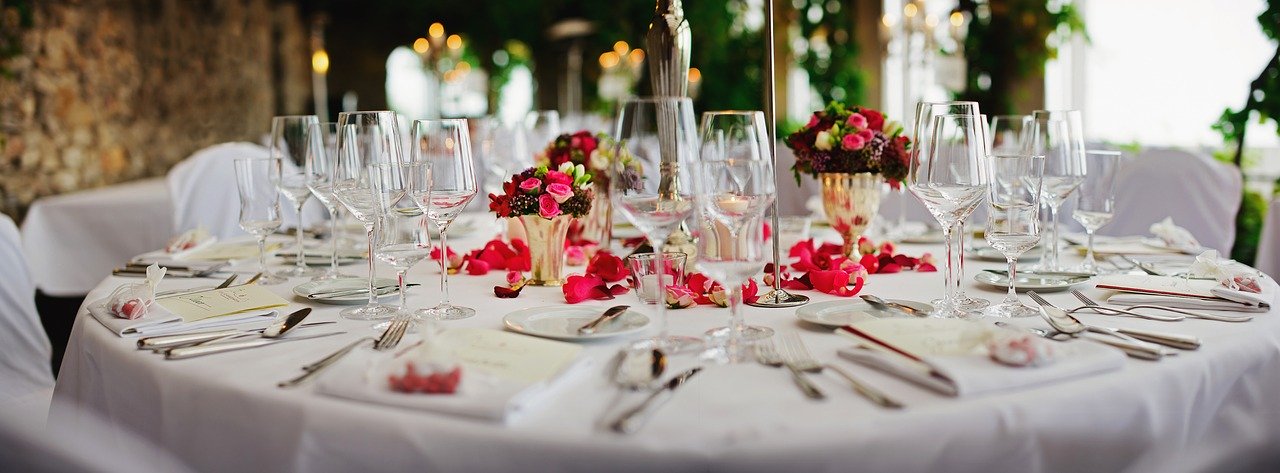 A beautiful invitation arrived in the mail. Caligraphied and glossy. Join me for a feast, it said. So I showed up to the place at the time. There was God. Sitting at an empty table. “I thought this was a feast. Where’s the food? The people? The music” I said, standing. “Coming. I wanted to talk first.” “Talk about what?” I said, still standing. “About whether or not you will sit down.” “Sit down to what? There is no feast here. I see nothing. No food, no dishes, no silverware. Nothing. I’m tired God. I’m tired of your games.” “And which games would those be?” “This paradox crap. If you invite people to a feast, lay out a feast for them. Come on. You know how to do this. You turned water into wine for Mary’s sake. Where’s the damn feast? You promised one. You invited me to one.” “Sit down. Tell me what you see.” “No, I won’t. I don’t see anything. This is all stupid!” I yell and then throw down a chair. “This is crap. It’s all crap. You don’t do what you say. You don’t protect when you said you would. You don’t stay with us when you say you will. Where were you? Where were you when she went through that? Where were you when I felt alone? Where were you when there was no food on the table and no money in my pocket? This is stupid. I’m done with these games.” “I don’t play games.” “Bull. Yes you do. It’s all games. You say something in your Word, like I’ll prepare a table for you. And then you do this crap. You sit at an empty table.” “Gena, sit down,” he says calmly, my anger not affecting him at all. “No. I don’t want to. You promised a feast. This isn’t what you promised. The invitation was a lie.” “Gena, sit down. Pick up the chair you threw and sit down.” “Fine! Ugh,” I say, sitting down with the attitude I thought I left behind in my teen years. “Tell me what you see.” “I see nothing,” I say. Perturbed. Silence. “I see a table, I see a lying God. I see an angry me.” “Ok. Good.” “Good? Ugh. Our definitions of good are very different, God.” “Gena, take a deep breath.” Reluctantly I breathe. “Close your eyes,” he says. “Why? That’s stupid,” I shout back. “Fine whatever,” I say, feeling like giving in might end this annoying conversation. “What do you see?” “Darkness.” “Good.” “I hate your definition of good.” Lovingly and slowly he says my name, “Gena,” then pauses. “What do you see? Use your other senses to see.” I try to focus. I try to get over my annoyance. I flare my nostrils to engage my sense of smell. The sweet aroma of citrus and grapes fill my breathing. But then the sweetness is replaced with smokiness. With my eyes still closed I say, “I think I sense oranges. So I see bright oranges in my mind. I see a bowl of plump purple grapes. I see a long-stemmed glass of Lambrusco with the bottle standing next to the glass. And, overpowering all of it is the smell of a spicily smoked turkey.” Somehow I sense God is smiling, even though my eyes are still closed. “What do you hear?” he asks. “Emptiness,” I say, but then I correct myself, “No, calmness.” As soon as that word came out of my mouth, I begin to hear a violin. Slow and low. “I hear some instruments,” I say. “A violin, and some other ones but my ear cannot differentiate them.” “Good. What do you taste?” he asks. He must have gotten out of his chair and walked over to where I am while I was focusing on the instruments. Is that a piano? Or a keyboard playing different types of sounds?. His hand guides my own as he wraps my fingers around a fork and slices it into a dense piece of cheesecake. I hear the sound the fork makes in the cake. My eyes are still closed, but my lips ask before I can understand how am seeing what I see. “This is gluten-free, right?” and then we laugh simultaneously. “There are no sensitivities or allergies here,” he says. I bite down into a succulent piece of New York style cheesecake garnished with a fresh raspberry—not a slimy canned strawberry. “I taste lime,” I say, “I mean, I taste cheesecake and raspberry, which I expected to taste because I see those in my mind. But I also taste lime which I don’t see in my mind.” He smiles even bigger. “Yes,” he says, “there is lime juice squeezed on top.” I sense he moves away from me, back to his chair across the table from me, and I feel a slight bit of melancholy creep into my whole self from my toes to my ears, my body feels sad. “Take another bite, Gena.” He says with directness in his voice. I do, and I am glad. “Now, slowly I want you to open your eyes,” he says. “Will it all go away if I do?” I ask earnestly. “Open your eyes,” he repeats. Slowly, carefully, I lift my eyelids like a heavy velvet curtain being pulled up. “I don’t see anything,” I say. “You don’t. But you do,” he says. “You see and you don’t see simultaneously.” I try to feel around with my hands. Can I still touch it and see with my appendages even if I can’t with my eyes, I wonder. “I don’t feel anything,” I say. “You don’t. But you do,” he says again. “Gena, you asked where the food and the people are—where the feast is—when you first arrived. Do you remember what I told you?” “Yes, you said they were coming.” “Exactly. Good.”When he said “good” this time, my heart felt joy, not anger like before. “What is coming is already here,” he said. “You can’t see it, but you can. Will you choose to sit down at what looks like an empty table to your world-veiled eyes? Will you choose to believe when you don’t want to believe? Will you sit when I invite you?” “I mean, I did earlier. I had a pretty bad attitude about it, though.” “Yes. Will you do it again, though? Will you sit down at the table I prepare for you? Even when it looks like it’s not prepared at all? Even when your friends, especially your Christian friends, tell you that it’s stupid for you to sit down. Even when your own family and … .” His voice got deep and serious before he continued, “and your own self thinks it’s the worst decision you could make.” “I don’t know.” I could sense him smirk a bit like Mona Lisa, but I didn’t see it with my eyes. “Good.” He paused. “Before you go, I want you to remember the turkey and the grapes and the cheesecake and the violins. I want you to remember that I have. I have. I AM and I HAVE and I DO. I am the God … “ his voiced trailed off and suddenly I saw him no more. “Of abundance,” I thought or maybe I heard. I was back on a park bench overlooking a soccer field. My phone rang, and I shuddered. He’s a God of abundance cloaked in a mask of scarcity. Meanwhile so many gods of scarcity cloak themselves in abundance. “I believe, God, help my unbelief,” I whispered to the blue sky before I answered my phone. For those vulnerable children being exploited,
or sought to be exploited—sexually, economically, or otherwise Lord protect them. Hedge their innocence. Be their Jehovah Shammah. Lord, hear our prayer. For those children that must work, whether by force or economic oppression, Protect their growing bodies, protect the health of their minds. Be their Jehovah Sabaoth. Lord, hear our prayer. For caregivers and parents, older siblings, aunts & uncles and grandparents Provide for these families. Be their Jehovah Jireh. Change laws & greedy rulers' hearts. Be their Jehovah Nissi. Lord, hear our prayer. For the dignity innate in every human being For the everlasting love you give all your children, Lord, let these children see and know and feel-- You are near and You are love. Be their Jehovah Rohi. Lord, hear our prayer. And for us, for those of us who can advocate for these children, equip us for this good work. That these children might know and see and love You more as they more deeply understand, Just how much You love them. Be all of our Jehovah Adonai. Lord, hear our prayer. 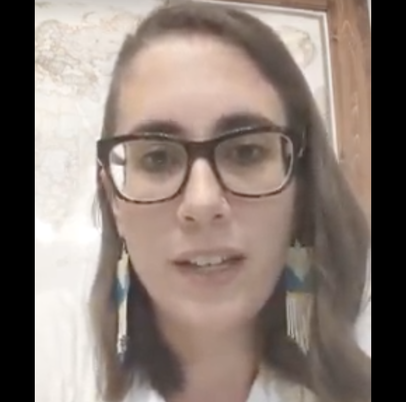 "No matter how hard you try to shake him, the god of scarcity is a sticky deity." — Alia Joy, Glorious Weakness. I struggle with how much I feed the god of scarcity when I greedily hoard my time. What do you hoard? What areas of your life is the god of scarcity an idol? And who is the God of Abundance? Can we trust him with everything? "Son, life is about sharing. Don't give what you have left over, rather share what you have now." — María Romero as quoted in Separated by the Border (out Oct. 29) 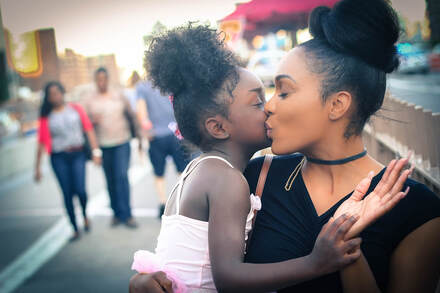 At the very end of my book, Separated by the Border, I use the possessive pronoun “Her” and I talk about God as Inclusive Mother. I know many of my evangelical peers will struggle with this phrase, which is why I wrote this blog. If you have had the opportunity to read the book, you may see this as an overarching theme. I didn’t try to make it a theme, but Lupe’s love showcased the beautifully relentless love of a mother which gave me a deeper understanding of God’s love. So I want to lay out why I chose to use such language and why I think it’s important. Let’s start at the beginning. All verses are in the NIV unless otherwise noted. Genesis 1:2
Now the earth was formless and empty, darkness was over the surface of the deep, and the Spirit of God was hovering over the waters. The word Spirit is the word Ruach in Hebrew. It means Breath or Wind. Genesis 1:26-27 (NASB) Then God said, “Let Us make man in Our image, according to Our likeness; and let them rule over the fish of the sea and over the birds of the sky and over the cattle and over all the earth, and over every creeping thing that creeps on the earth.” God created man in His own image, in the image of God He created him; male and female He created them. Some theologians read this and say that God’s image holds both male and female in it if in God’s likeness we are being created. Genesis 2:18 The Lord God said, “It is not good for the man to be alone. I will make a helper suitable for him.” This word “helper” found here is the Hebrew word EZER which is also used several times throughout the Bible to describe God. (Ex. 18:4, Deut 33:7, 33:26, 33:29, Ps. 20:2, 33:20, 70:5, 89:17, 115:11, 121:1-2, 124:8, 146:5, Hosea 13:9) Deuteronomy 32:10-12, 18 In a desert land he found him, in a barren and howling waste. He shielded him and cared for him; he guarded him as the apple of his eye, like an eagle that stirs up its nest and hovers over its young, that spreads its wings to catch them and carries them aloft. The Lord alone led him; no foreign god was with him. (18) You deserted the Rock, who fathered you; you forgot the God who gave you birth. Psalm 131:2 But I have calmed and quieted myself, I am like a weaned child with its mother; like a weaned child I am content. This is a Psalm of David where he is speaking directly to the LORD. Isaiah 42:14 For a long time I have kept silent, I have been quiet and held myself back. But now, like a woman in childbirth, I cry out, I gasp and pant. Isaiah 49:15 Can a mother forget the baby at her breast and have no compassion on the child she has borne? Though she may forget, I will not forget you! Isaiah 66:12-13 I will extend peace to her like a river, and the wealth of nations like a flooding stream; you will nurse and be carried on her arm and dandled on her knees. As a mother comforts her child, so will I comfort you; and you will be comforted over Jerusalem. Hosea 11:3-4It was I who taught Ephraim to walk, taking them by the arms; but they did not realize it was I who healed them. I led them with cords of human kindness, with ties of love. To them I was like one who lifts a little child to the cheek, and I bent down to feed them. Matthew 3:16-17 (NASB) along with Mark 1, Luke 3, John 1 — The Baptism of Jesus After being baptized, Jesus came up immediately from the water; and behold, the heavens were opened, and he saw the Spirit of God descending as a dove and lighting on Him, and behold, a voice out of the heavens said, “This is My beloved Son, in whom I am well-pleased. In the Baptism of Jesus, we read that the Spirit of God descended on Jesus like a dove and then a voice from heaven says, "This is my Son, in whom I am well pleased." We often assume that the voice from Heaven is Father God's voice. But God the Father is never mentioned in this passage. It is the Holy Spirit who is mentioned. What if it is the Holy Spirit who is doing the speaking? What if the Holy Spirit is saying, "This is My beloved Son." I think that if we can theorize that it's God the Father's voice, we can also theorize that it's God the Mother's voice, who has sent a dove to her son to remind him in physical form she's there and she's watching over. Matthew 23:37 & Luke 13:34 Jerusalem, Jerusalem, you who kill the prophets and stone those sent to you, how often I have longed to gather your children together, as a hen gathers her chicks under her wings, and you were not willing. Luke 15:8-10 Or suppose a woman has ten silver coins and loses one. Doesn’t she light a lamp, sweep the house and search carefully until she finds it? And when she finds it, she calls her friends and neighbors together and says, ‘Rejoice with me; I have found my lost coin.’ In the same way, I tell you, there is rejoicing in the presence of the angels of God over one sinner who repents. I have to give Emmy Kegler credit for this one. I was listening to a podcast where she was being interviewed for her book One Coin Found, and she said that while studying scripture one day she was looking at the Lost Parables in Luke: The Lost Sheep, The Lost Coin, The Lost Son. She described how we often see God as the shepherd in the parable of the lost sheep. And we often see God as the father in the parable of the lost son, but rarely do we teach that God is the woman searching for her lost coin. John 3:6 Flesh gives birth to flesh, but the Spirit gives birth to spirit. Females give birth, and it’s possible this is a figure of speech. Maybe all the verses above are merely figures of speech, metaphors and similes. But maybe in the same spirit (pun intended) my use of SHE is a figure of speech when referring to God. And if so, why do so many people see that as a faux pas? Because in many ways we cannot define God fully, so in every attempt to do so we are only using figures of speech. Some theologians and some denominations are pushing for genderless pronouns for God. For me, I struggle with this and here’s why: taking the gender away from God makes God less understandable, less tangible, less relatable to me. Andrew and I chose not to know the gender of our second child until the day of her birth. It was hard for me to connect with the baby in my belly because I didn't know what to call the baby: it, baby. That was all the language we had. The surprise on her birthday was big, but I would never do it again. I wanted to connect with the being inside of me during pregnancy and not knowing her gender during that time made it harder to connect. I grew up in a Pentecostal-like church and the Holy Spirit was a very undefinable being, a ghost that slayed people and made weird things happen. For a portion of my life, I ran away from the Holy Spirit because I feared the weirdness of Her. For more on that, check out my article at Missio Alliance. Seeing the Holy Spirit as a mother-figure does three important things:
When I say that God is Mother, and when I use a feminine pronoun for God, I am not saying that God is only Mother or only female. I believe that God transcends gender. But here, I am saying that one way to see God is to see Mother God, alongside Father God, and Brother God. There is no disunity in the Trinity, though most of my life I secretly thought this was the case. I see the unity so much more when I see the Trinity as Divine Family. I will leave you with the words of Jurgen Moltmann, a German reformed white male theologian. From his book The Spirit of Life: A Universal Affirmation: In Trinitarian theology, the image of the divine family raises the Spirit to the same rank as the Father, and puts the Spirit before the Son. Unless, like Ludwig Feuerbach, we wish to cast the image aside altogether as a pure projection of a family idyll, it does offer interesting corrective possibilities, if we compare it with the other pictures of the Trinity - Irenaeus's image of the One God with two hands, for example. But more important than these speculative possibilities is the new definition of what it means for human beings to be the image of God. If the Trinity is a community, then what corresponds to it is the true human community of men and women. A certain de-patriarchalization of the picture of God results in a de-patriarchalization of the church too. Of course by calling God the Holy Spirit 'Mother' we are merely putting parallel to the 'Father' another power as primal source. Psychologically speaking, inward liberation from the mother is as much a part of human development as emancipation from the Father. Like Israel's prophets, Christianity actually replaced the patriachal and matriarchal powers of origin by the messianism of the Child, as the bearer of hope and the beginning of the future. 'Unless you become like children, you will never enter the kingdom of heaven' (Matt 18:3). But this is not brought out by the patriarchal or matriarchal image of God. |
Gena's
|


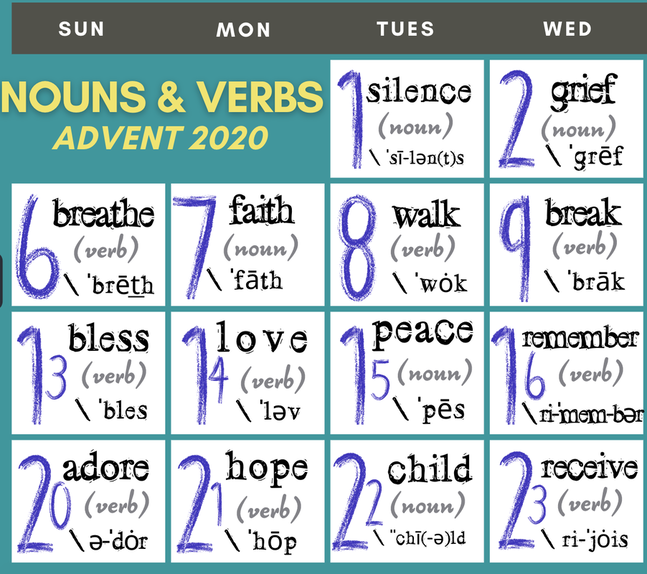
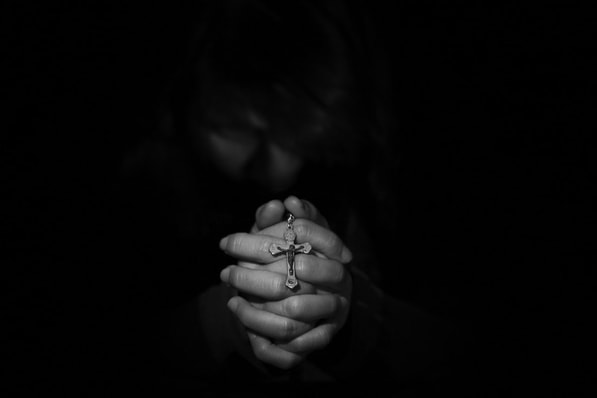
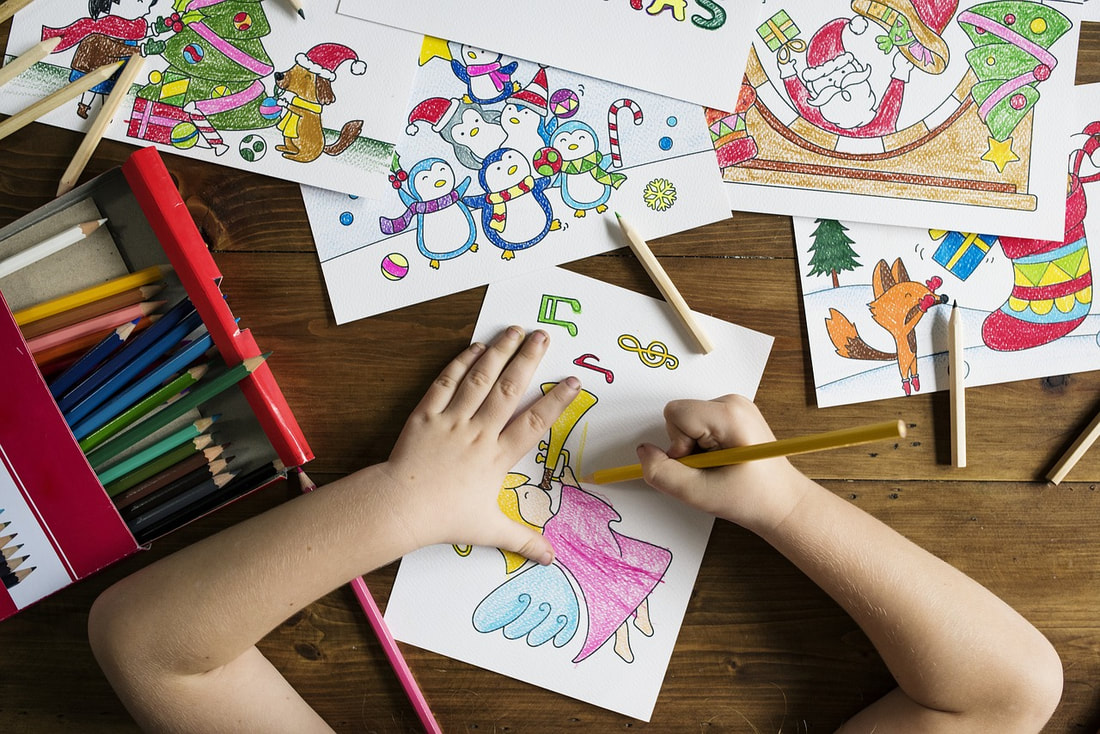
 RSS Feed
RSS Feed

